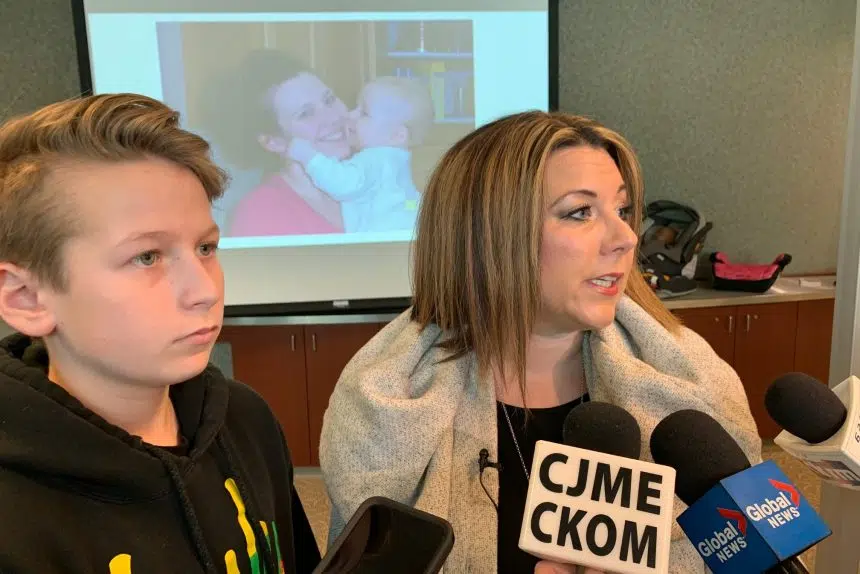Every time Melissa Gavel drives the highway between Melville and Regina, she is thankful for a seatbelt and a carseat which kept her and her infant son alive.
According to SGI, an average of 34 people died in crashes every year in the last decade because they aren’t wearing seatbelts properly. Gavel is sharing her story ahead of the March traffic safety blitz focused on seatbelt and carseat safety.
In 2006, Melissa was making the Melville-to-Regina trip on the highway with a friend and her then-three-month-old son Kai in his carseat. Gavel hit black ice, overcorrected to avoid another vehicle and a fence, and rolled twice into the ditch.
Gavel still remembers panicking because she didn’t hear her baby cry and she couldn’t open her door to get to him in the back seat. Thanks to seatbelts and the carseat, all three of the occupants were completely unharmed.
“A sense of gratitude has evolved because every time we pass that particular spot on the highway we are grateful that we are having the conversation about our safety and how fortunate we were as opposed to being a cross on the ditch on that highway,” Gavel said.
For Gavel, she and her son are living proof of the value of seatbelts and carseats.
“I consistently talk about how lucky we are and because we had our seatbelts on, we weren’t ejected. Because we had our seatbelts on, we weren’t injured in any way,” Gavel explained.
Kai was too young to remember the crash itself, but the lesson stands out to him.
He’s excited to learn how to drive when he turns 15 this year. Reaching for a seatbelt is second nature every time he gets into a vehicle.
“It saved my life and I’m hoping that if I ever get into an accident, it can do it again,” Kai said.
He plans to tell his friends the same story he has heard so many times if any of them ever forget to buckle up.
Despite decades of public education, every month, police across Saskatchewan report between 300 and 600 offences related to seatbelts and carseats. SGI reported that, in January, there were 428 tickets handed out for seatbelt offences.
SGI runs free carseat clinics and offers appointments with carseat technicians to help parents understand how to properly install carseats to keep their children safe.
Acting Cpl. Adele Breen of the RCMP’s Forensic Collision Reconstruction Program said officers see issues all the time when it comes to the child restraints.
“People try to install their carseats properly, but the reality is a lot of the carseats that we’re seeing nowadays are not installed properly,” Breen said. “Out of the carseats we usually check, about 90 per cent of them are not installed properly. There are small fixes (required).”











